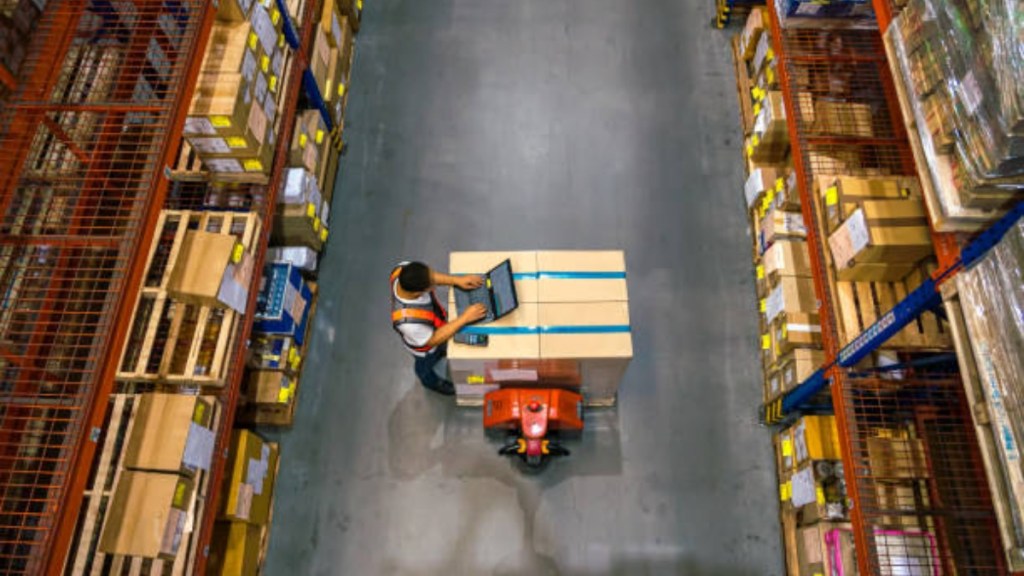By Sunil Kumar
A career in Learning Logistics Technology is an exciting pathway that merges education, technology and logistics management. As the logistics industry embraces digital transformation, the need for professionals skilled in the technology that powers modern supply chains is growing. This career involves using advanced tools to streamline logistics processes, optimise supply chains, and enhance the efficiency of educational and training systems within the industry.
As logistics technology continues to evolve, professionals in the field face several challenges when adopting new systems and processes. From navigating complex platforms to keeping pace with rapid technological advancements, these challenges can hinder learning and growth. However, with the right approach, overcoming these obstacles becomes attainable. Here are some common challenges in learning logistics technology and strategies to address them effectively.
Complexity of Systems
Logistics technology often involves multifaceted systems that can be overwhelming to newcomers. Transportation Management Systems (TMS) and Warehouse Management Systems (WMS), for instance, are intricate platforms that require in-depth understanding.
Solution: To manage this complexity, it’s essential to build a strong foundation in logistics principles before delving into the technical aspects. Breaking down complex systems into smaller, more manageable parts and focusing on incremental learning can also make the process more approachable.
Rapid Technological Changes
The logistics industry is subject to constant technological innovation, with new tools and platforms being introduced regularly. Keeping pace with these changes can be a significant challenge for professionals.
Solution: Staying updated on industry trends is crucial. This can be achieved through industry blogs, webinars, newsletters, and continuous education. Pursuing certifications and short courses related to the latest logistics technologies can help professionals stay ahead of the curve.
Integration with Legacy Systems
One of the more technical challenges in logistics technology is integrating new software with older, legacy systems. Many organizations rely on older platforms that may not be compatible with modern technology.
Solution: A deep understanding of how newer systems interact with existing ones is necessary. Collaborating with IT professionals or system integrators can ensure a smooth transition. Additionally, specialized training on system integration and software compatibility can provide valuable insights into overcoming this challenge.
Data Management
Logistics relies heavily on data for decision-making, but managing large volumes of data effectively is often a daunting task. Understanding how to collect, interpret, and apply data is critical for maximizing the potential of logistics technology.
Solution: Developing data literacy is essential. Training in data analytics and business intelligence tools specific to logistics can enhance one’s ability to manage and interpret data. Many platforms, such as TMS or WMS, offer built-in analytics tools that can aid in this process.
Resistance to Change
Adopting new technologies often encounters resistance, either from individuals or within organizations. This resistance can stem from a reluctance to move away from familiar processes or a lack of understanding of the benefits of new systems.
Solution: Fostering a growth mindset within teams and focusing on the advantages of technology—such as increased efficiency and better decision-making—can ease this resistance. Starting with small, less complex technological tools can help build confidence before moving on to more advanced platforms.
Lack of Hands-on Experience
For many professionals, the lack of practical experience with logistics technology poses a significant challenge. Learning theory alone is often insufficient when it comes to mastering complex systems.
Solution: Gaining hands-on experience is key. Internships, project-based learning, or simulation tools that mimic real-world logistics operations provide valuable opportunities for practice. Many logistics platforms also offer demo versions that can be used for training and skill development.
Cost of Learning
The expense of training programs and courses can be a barrier to learning logistics technology, particularly for individuals or small businesses.
Solution: Many free or affordable resources are available to those looking to expand their skills. Online platforms offer courses and tutorials on logistics technology at little or no cost, making professional development accessible to a wider audience.
Understanding Global Regulations
Global logistics involves navigating complex regulations and compliance requirements, which can vary from country to country. Keeping up with changes in trade laws, tariffs, and customs regulations is a continuous challenge for logistics professionals.
Solution: Staying informed through specialized courses in trade compliance and customs regulations can help professionals maintain a thorough understanding of global trade laws. Engaging with industry forums and professional associations also provides opportunities to stay updated on regulatory changes.
In conclusion, while learning logistics technology presents numerous challenges, the key to overcoming them lies in a structured, proactive approach to education and professional development. By leveraging a combination of foundational knowledge, continuous learning, and hands-on experience, logistics professionals can successfully navigate the evolving technological landscape of the industry.
The author is CEO of Everfast Freight Forwarders. Views are personal.
Disclaimer: Views expressed are personal and do not reflect the official position or policy of FinancialExpress.com. Reproducing this content without permission is prohibited.

